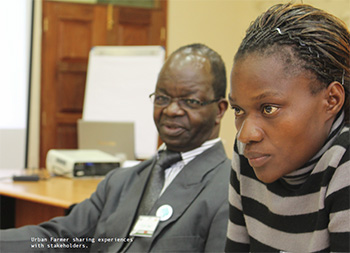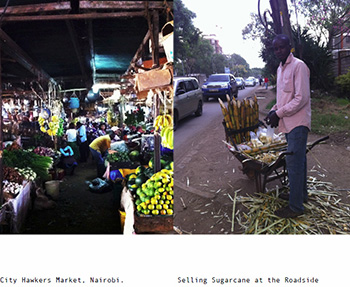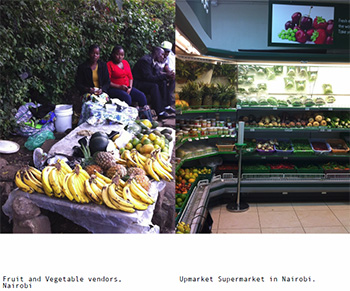Report of the FOODMETRES workshop (Nairobi, July 2013)
 On July 3rd, 2013 the Nairobi Case Study of FOODMETRES took place at the University of Nairobi. 20 people attended the event, with a broad range of interests, including the academics, urban farmers, the Food and Agricultural Organisation of the United Nations, the Nesalf – a forum for urban farmers –, planners for the Nairobi City council, whilst the Governor of Nairobi was represented by the Town Clerk, who also delivered the key note and opening address.
On July 3rd, 2013 the Nairobi Case Study of FOODMETRES took place at the University of Nairobi. 20 people attended the event, with a broad range of interests, including the academics, urban farmers, the Food and Agricultural Organisation of the United Nations, the Nesalf – a forum for urban farmers –, planners for the Nairobi City council, whilst the Governor of Nairobi was represented by the Town Clerk, who also delivered the key note and opening address.
An important context to the event was the introduction of the new constitution. This constitution designated Nairobi as a new county, which raised questions about the Nairobi County Council’s ability to implement food policy beyond the county borders.
The workshop was vibrant, and at times quite tense. The stakes are high amongst actors, and synergy is low. Stakeholders are not working towards a common goal. The new constitution however may change that, with local government more receptive to the food security (not the environmental) benefits of short(er) supply chains. A number of interesting things emerged, the most fundamental of which is that making the Nairobi case study fit into the broader FOODMETRES conceptual framework is going to be challenging. The relevant debates within the FOODMETRES framework are very different in the case of Nairobi than in other FOODMETRES case studies. The tension between policies relating to short supply chains and practitioners (advocacy groups) is fairly severe. The
role of policy innovations should get a larger role in the Nairobi case study than perhaps in other studies. Read more (Adobe PDF).




